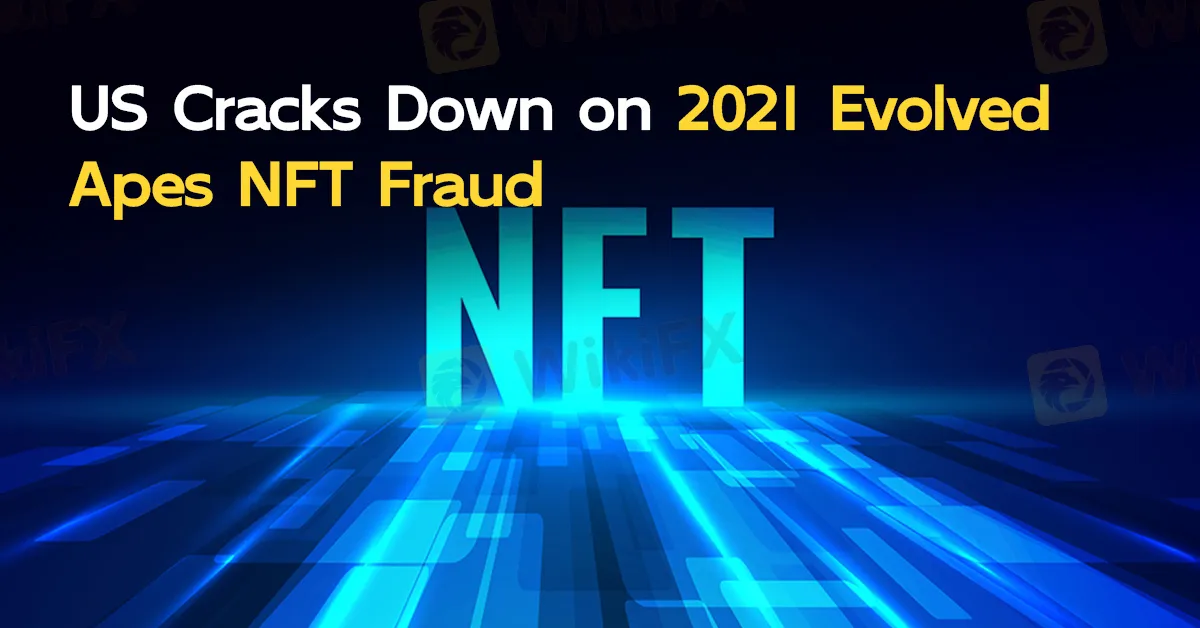简体中文
繁體中文
English
Pусский
日本語
ภาษาไทย
Tiếng Việt
Bahasa Indonesia
Español
हिन्दी
Filippiiniläinen
Français
Deutsch
Português
Türkçe
한국어
العربية
US Cracks Down on 2021 Evolved Apes NFT Fraud
Abstract:The United States Attorney's Office for the Southern District of New York announced today that three individuals have been charged in connection with a non-fungible token (NFT) rugpull from 2021, known as Evolved Apes.

The United States Attorney's Office for the Southern District of New York announced today that three individuals have been charged in connection with a non-fungible token (NFT) rugpull from 2021, known as Evolved Apes.
According to a release from the SDNY's office, Mohamed-Amin Atcha, Mohamed Rilaz Waleedh, and Daood Hassan face charges of wire fraud and money laundering.
Evolved Apes was a collection of 10,000 unique NFTs, promising a video game that never materialized. The anonymous developer, Evil Ape, vanished a week after the project‘s launch, siphoning 798 Ether (equivalent to $3 million today, or $2.7 million at the time) from the project’s funds.
U.S. Attorney Damian Williams indicated that the defendants orchestrated a scheme to inflate the price of digital artwork through false promises about developing a video game. They allegedly took investor funds, never developed the game, and pocketed the proceeds. He emphasized that despite the novelty of digital art, making false promises for money remains illegal.

In the cryptocurrency world, this type of scheme is referred to as a rug pull. It involves developers raising funds from investors through the sale of tokens or NFTs, then abruptly shutting down the project and disappearing with the money.
Digital assets, including cryptocurrencies and NFTs, are particularly susceptible to investment frauds and scams due to their decentralized nature, lack of regulatory oversight, and the anonymity they offer. These factors create an environment where fraudulent actors can operate with relative impunity, exploiting the novelty and complexity of digital assets to mislead investors. Additionally, the rapid growth and high volatility of the market attract both inexperienced investors and malicious entities, making it easier for scams like rug pulls to thrive. The technological sophistication required to understand and navigate this space also leaves many investors vulnerable to deceptive schemes.
According to De.Fi's Rekt database, more than $14.5 billion has been lost to rug pulls since 2011.
The largest rug pull to date involved the South African digital assets investment fund, Africrypt, which absconded with 69,000 bitcoins in 2021, worth nearly $4.8 billion at the time.

Disclaimer:
The views in this article only represent the author's personal views, and do not constitute investment advice on this platform. This platform does not guarantee the accuracy, completeness and timeliness of the information in the article, and will not be liable for any loss caused by the use of or reliance on the information in the article.
Read more

How a Housewife Lost RM288,235 in a Facebook Investment Scam
A 47-year-old housewife in Malaysia recently fell victim to an online investment scam, losing a substantial sum of RM288,235 after engaging with a fraudulent scheme advertised on Facebook.

Georgia Man Charged in Danbury Kidnapping and Crypto Extortion Plot
Georgia man James Schwab charged in Danbury kidnapping tied to $230M crypto heist. Plot targeted couple for ransom after Miami altercation with son.

Bybit Shuts Down NFT Marketplace Amid Crypto Market Downturn
Bybit announces the closure of its NFT marketplace, citing efforts to streamline offerings. Discover the latest trends in the declining NFT market and its shift to utility-based growth.

Galaxy Digital Settles $200M in Luna Token Manipulation Case
Galaxy Digital pays $200M to settle Luna token manipulation probe by NY regulators, linked to TerraUSD’s 2022 crash, impacting crypto market stability.
WikiFX Broker
Latest News
The Withdrawal Trap: How Scam Brokers Lure Victims into Paying More
FCA to Investors: Think Twice Before Trusting These Brokers
Trump\s tariffs: How could they affect the UK and your money
Trump gambles it all on global tariffs he\s wanted for decades
TradingView Brings Live Market Charts to Telegram Users with New Mini App
Trump tariffs: How will India navigate a world on the brink of a trade war?
Interactive Brokers Launches Forecast Contracts in Canada for Market Predictions
IG Group Acquires Freetrade for £160M to Expand UK Investment Market
U.S. March ISM Manufacturing PMI Released
Should You Beware of Forex Trading Gurus?
Currency Calculator







